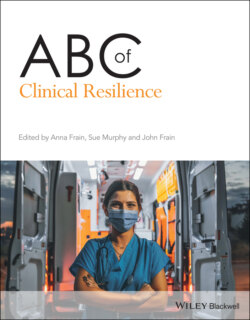Читать книгу ABC of Clinical Resilience - Группа авторов - Страница 19
Conclusion
ОглавлениеThe global pandemic has reminded us of the need to protect healthcare workers in order to enable them to optimally care for patients. A UK Institute for Public Policy Research report in April 2020 (Thomas and Quilter‐Pinner, 2020) reported that half of health workers felt their mental health had deteriorated in the first eight weeks of the pandemic, and 20% reported that Covid‐19 and the resulting difficulties had made them more likely to leave their profession. They suggested five core guarantees that need to be given to the health and care workforce.
Safety: Staff shouldn’t be under pressure to work without adequate protective equipment.
Accommodation: For staff facing long journeys to work or with concerns about family safety, there should be alternative accommodation provided.
Mental health: Workers’ mental health should be ensured by extending priority access to health and care professionals.
Remuneration: Staff should receive their full salary if they fall ill; and, beyond the pandemic, no health and care professional should be paid less than the real living wage.
Care guarantee: Government should support professionals to remain in work by ensuring that they are able to meet unpaid care commitments – such as childcare or caring for other dependent family members.
Organisations need to embed these guarantees, as part of resilience training and support for practitioners to facilitate safe and effective delivery of patient care. Possible approaches to training are considered in Chapter 10.
Healthcare practitioners are motivated, almost without exception, by a desire to safely and effectively restore their patients to health and well‐being. During the pandemic, this has been universally recognised by the public in a myriad of forms – from a weekly round of communal applause to feats of extraordinary fundraising to support local staff. They deserve the thanks and respect of us all:
‘It is not the critic who counts; nor the man who points out how the strong man stumbles, or where the doer of deeds could have done them better. The credit belongs to the man who is actually in the arena, whose face is marred by dust and sweat and blood; who strives valiantly; who errs, who comes short again and again, because there is no effort without error and shortcoming…’
– Theodore Roosevelt
